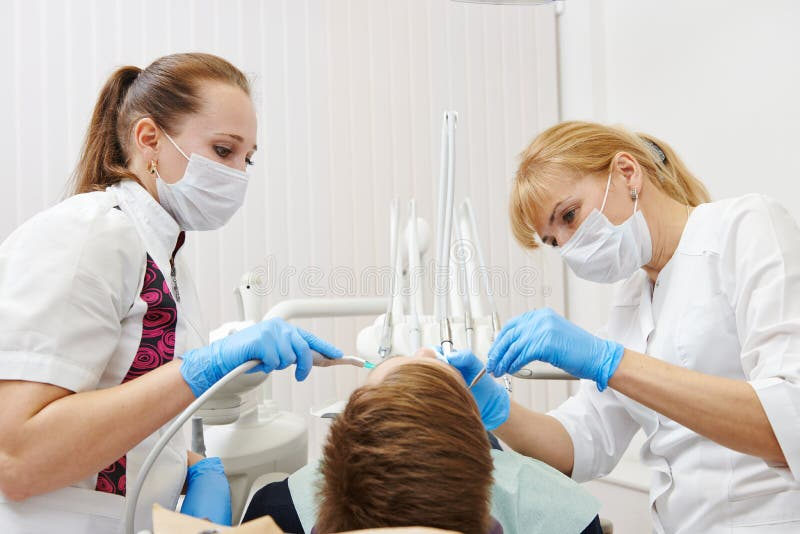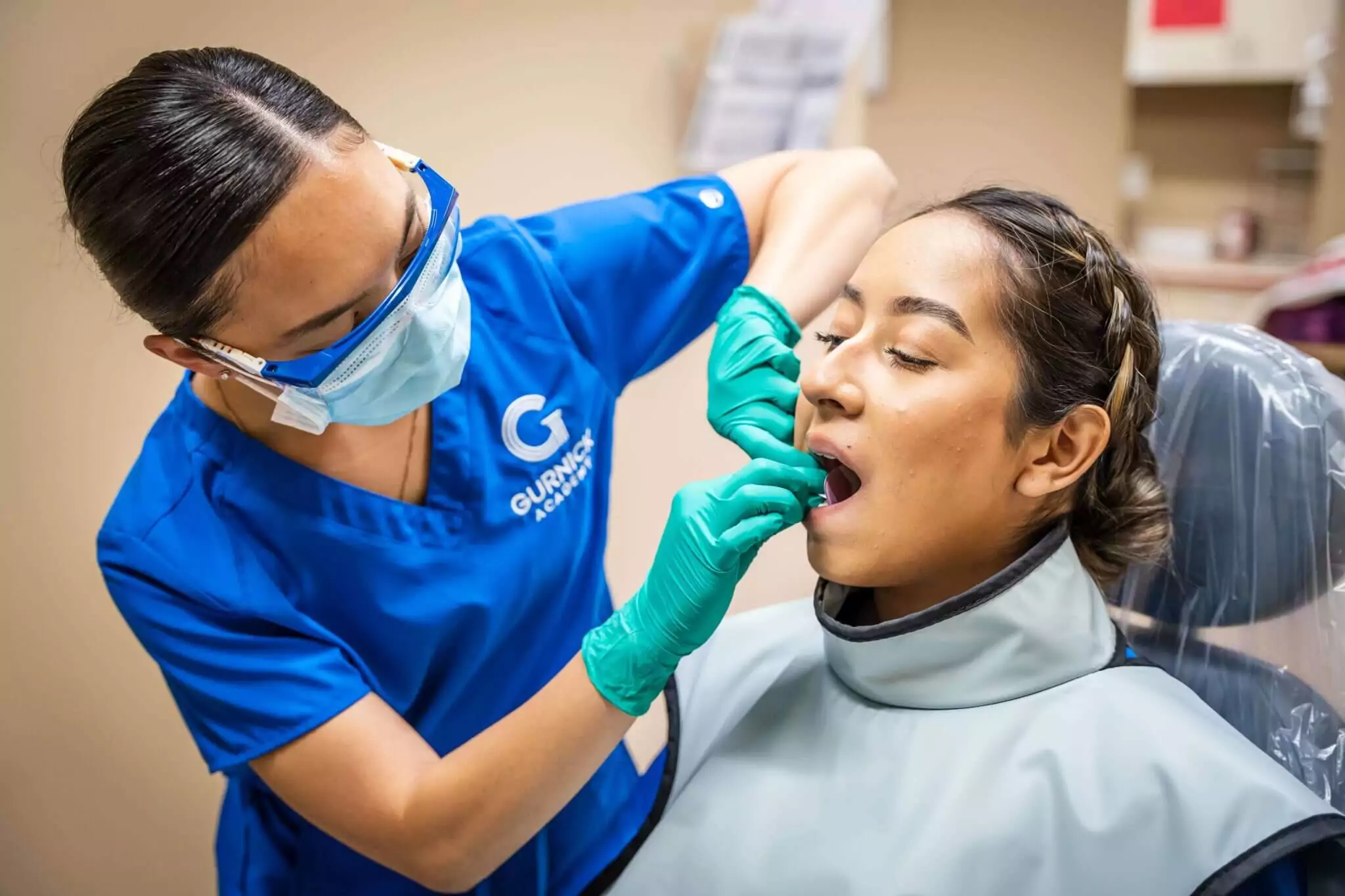Table of contents
Get Started with Kwikly
Get the latest updates, insights, and exclusive content delivered straight to your inbox.
Let’s break down why this profession makes sense and what you can actually expect.
Key Takeaways
- Dental hygienists do the important work of preventive care, teaching patients, and backing up dentists, with daily tasks that include checking patients and doing cleanings.
- The career gives you solid job security, with a projected 9% employment growth, an excellent salary with good salaries averaging $107,227, and flexible scheduling that lets you have a life outside work.
- While the profession pays off, dental hygienists deal with challenges like physical demands and handling anxious patients, so you need good people skills and the ability to communicate well.

Understanding the Role of a Dental Hygienist
Dental hygienists work closely with dental assistants and dentists to do essential work in the dental field. They focus on keeping problems from happening and giving dentists the support they need. On any given day, dental hygienists examine patients for signs of oral diseases, such as gingivitis, and perform routine oral health assessments to deliver the preventive care that keeps people’s mouths healthy.
They teach patients about different oral hygiene techniques, including flossing and picking the right toothbrush, making sure that patients know how to take control of their patients teeth, polish teeth, and oral health.
Day-to-Day Responsibilities
Every day as a dental hygienist looks different, depending on what each patient needs. While hygienists do similar procedures with different patients, these tasks can include taking and developing dental X-rays, cleaning and polishing teeth, and helping with patient assessments.
The daily routine might feel repetitive sometimes, but getting to work with all kinds of people, helping patients achieve better oral health, and managing their oral health keeps the job interesting and worthwhile.
Work Environments
Dental hygienists work in all sorts of places, from private dental offices to community health centers, hospitals, and dentists offices. The work environments are usually calm and welcoming, making sure patients feel comfortable in a dental office.
Some dental hygienists work in multiple offices or for more than one dentist, which provides additional flexibility and variety in their work environment.
Dental hygienists work alongside dentists, dental assistants, and other hygienists to give complete care, creating a workplace where everyone supports each other.

Benefits of a Career in Dental Hygiene
A career in dental hygiene comes with real benefits that make it attractive for a lot of people. Dental hygienists get strong job security, competitive salaries, and the chance to make a real difference in patients’ oral health. The profession’s ranking among the best healthcare support jobs shows just how stable and promising it is.
On top of that, dental hygienists’ work in preventing gum disease through routine cleanings and patient education has a direct impact on patients' overall health by promoting healthier lifestyles.
Strong Job Outlook
The job outlook for dental hygienists is really strong, with employment expected to jump by 9% between 2023 and 2033. This growth reflects the increasing demand for dental hygienists within the healthcare industry, resulting in approximately 16,400 job openings each year. The demand is driven by an aging population, more awareness of oral health, and better access to dental services.
This stable career path gives you a reliable and rewarding future if you’re thinking about getting into the field.
Competitive Salaries
Dental hygienists can expect good salaries right from the start of their careers. The average salary for a dental hygienist is $107,227, with the top ten percent making over $118,400. Things like where you work, what kind of practice you’re in, and how much experience you have can affect your salary.
These solid salary prospects make dental hygiene a financially smart career choice. Many dental hygienists also receive benefits such as retirement contributions, which can vary by employer.
Flexible Scheduling Options
One of the biggest perks of a career in dental hygiene is how flexible your schedule can be. A lot of dental hygienists work part-time, which lets them balance their work and personal lives without going crazy.
Many dental hygienists and many hygienists choose to work only a few days a week or part-time, and dental practices often hire hygienists for flexible or floating positions.
Platforms like Kwikly give you solid support systems, helping dental hygienists manage their schedules easily and negotiate workloads that work for them.

Challenges in the Dental Hygiene Profession
While a career in dental hygiene pays off, it comes with its own set of challenges. Dental hygienists often deal with physical demands, repetitive tasks, and frequently need to manage dental anxiety in their patients, which requires strong communication and empathy skills.
These challenges need a mix of physical endurance, creativity, and strong people skills to handle effectively.
Repetitive Tasks
A lot of dental hygienists develop a routine for daily tasks like cleaning, polishing, and examining teeth. While these tasks can get repetitive, hygienists can handle the monotony by coming up with their own techniques and strategies to stay engaged and motivated.
These problem-solving skills can lead to better job satisfaction and personal fulfillment.
Physical Demands
The physical demands of dental hygiene can be tough; treating patients often requires long periods of standing and repetitive motions. Investing in ergonomic tools and practices can help cut down on physical strain and prevent chronic pain.
Tackling these challenges head-on helps dental hygienists stay healthy and deliver quality care.
Managing Patient Anxiety
Managing patient anxiety is a big part of dental care. Dental hygienists need to develop good communication and empathy skills to help patients feel comfortable and relaxed during their visits, especially those who get anxious about dental work.
Creating a supportive environment and teaching patients about their procedures can really improve patient experience and outcomes.

Educational Pathways to Becoming a Dental Hygienist
Aspiring dental hygienists need to complete specific educational requirements, including obtaining a degree from an accredited dental hygiene program and passing licensure exams to become a dental hygienist.
Continuing education and specialization can help boost your career prospects and expertise in the field.
Degree Programs
Dental hygienists can pursue different degree programs, including:
- Associate degree or associate's degree in dental hygiene, which is typically completed in about two years and is the standard entry-level requirement to start a career in this field
- Bachelor's degree in dental hygiene
- Master's degree in dental hygiene
- Dental hygiene degree
Dental hygiene programs, including those offered at dental hygiene schools, are accredited and prepare students for licensure as dental hygienists.
Looking for more advanced opportunities? A bachelor's degree or master's degree gives you additional training and opens doors to specialized roles. Master's degree programs in dental hygiene can lead to careers in education, research, or administration.
Licensing Requirements
Becoming a licensed dental hygienist requires:
- Completing a CODA-accredited program
- Passing national and state-level exams
- Completing continuing education, which is often required to keep your license and stay current with industry practices.
These educational requirements make sure that dental hygienists are ready to deliver quality care.
Continuing Education
Continuing education is important for dental hygienists to stay updated with the latest advances in dental technology and practices. Opportunities for specialization in areas like pediatric or geriatric dental hygiene can boost your career paths and expertise.
Master's degree programs and other advanced studies can lead to roles in research, teaching, and administrative functions within the dental field.

Career Advancement Opportunities
Career advancement opportunities for dental hygienists are everywhere in a dental hygienist career. Specializations, advanced degrees, and leadership roles can really boost your career prospects and satisfaction.
With additional training, dental hygienists can expand their scope of practice to include restorative services such as extracting primary teeth and placing temporary crowns, allowing them to perform advanced procedures like working with primary teeth and temporary crowns.
Going after these opportunities lets dental hygienists grow professionally and contribute more broadly to dental health.
Specializations
Dental hygienists can specialize in different fields, like:
- Pediatric hygiene
- Geriatric hygiene
- Periodontics
- Orthodontics
- Public health roles
These specializations not only boost career opportunities but also let hygienists focus on specific dental health challenges and make a bigger impact.
Specializing can lead to better job satisfaction and advanced career prospects.
Advanced Degrees
Going after advanced degrees, like a master's degree in dental hygiene, can open up roles in academia, management, and research. These advanced educational paths give you additional training and expertise, letting dental hygienists take on bigger responsibilities and leadership roles within their profession.
Leadership Roles
Leadership roles in dental hygiene can include positions in management, education, and corporate settings. Opportunities like program directors and community clinic administrators let experienced dental hygienists influence clinical operations and policies.
These roles need a mix of experience and advanced education, helping hygienists shape dental health programs and mentor the next generation of professionals.
The Impact of Dental Hygienists on Oral Health
Dental hygienists have a real impact on oral health and overall well-being. Through preventive treatments, patient education, and community health initiatives, they play an important role in maintaining and improving the health of their patients. As more people retain their original teeth into old age, dental hygienists are essential in helping patients preserve their original teeth and natural dentition. By promoting good oral hygiene practices, dental hygienists help reduce the risk of systemic diseases and contribute to healthier lives.
Preventive Care
Preventive care is what dental hygiene is all about in a dental practice. Dental hygienists use different tools and techniques to remove tartar and plaque, apply preventive treatments like sealants, and teach patients about maintaining healthy oral hygiene habits.
These preventive measures not only keep your mouth healthy but also relieve pain, reduce stress and anxiety, and promote overall health.
Patient Education
Dental hygienists play a crucial role as they educate patients about proper oral hygiene techniques. They help patients understand the importance of maintaining oral health and tailor their educational approach to each individual's needs, collaborating with other healthcare professionals to address broader health impacts.
This educational work helps reduce long-term dental care costs and improve overall patient outcomes, as recommended by the American Dental Association.
Community Health
Dental hygienists make a real difference in community health by working in different settings like:
- Community health centers
- Preschools
- Senior centers
- Addiction facilities
Programs like the one at Goodwin University focus on practical application in community health, giving students valuable clinical experience.
By addressing oral health disparities and getting involved in public health initiatives, dental hygienists promote overall health and well-being within communities.

How Kwikly Supports Dental Hygienists
Kwikly is a real resource for dental hygienists, offering a platform that connects them with flexible job opportunities and supports their professional growth. Kwikly helps dental hygienists find shifts that work with their schedules, improving work-life balance and providing a smooth experience for everyone.
This approach helps streamline staffing, cut costs, and improve patient care to better serve patients.
Easy Access to Shifts
With Kwikly, dental professionals can quickly sign up, go through a simple vetting and interview process, and get access to a list of open shifts in their area. Once approved, they can apply right away and show up ready to work, making sure they can keep a flexible schedule while meeting their professional goals, all in just a few days.
Competitive Pay with Same-Day Payouts
Kwikly offers competitive pay, with the added benefit of same-day payouts through the Kwikly Wallet feature. This secure and fast payment option lets dental hygienists get their earnings on the same day they complete their shifts, giving them financial stability and peace of mind.
Support and Flexibility
Kwikly gives you comprehensive support and flexibility, letting dental professionals:
- Choose when and where they want to work without any pressure or commitment
- Work with no shift minimums required
- Pick up shifts that work with their schedules
- Go for full-time temping or just some extra income
This level of control and support makes sure you get real job satisfaction and a healthy work life balance.
Summary
In summary, a career in dental hygiene offers real benefits, from strong job security and competitive salaries to flexible scheduling options. Dental hygienists play an important role in maintaining and promoting oral health, providing preventive care, and educating patients. The job outlook for dental hygienists is promising, with a steady increase in demand driven by an aging population and more awareness of oral health.
Despite the challenges, like repetitive tasks, physical demands, and managing patient anxiety, the profession is still rewarding and fulfilling. By staying proactive and investing in ergonomic tools and continuing education, dental hygienists can overcome these challenges and continue to provide quality care. Educational pathways, including degree programs and licensing requirements, make sure that dental hygienists are ready for their roles.
Kwikly's platform offers real support for dental hygienists, providing easy access to shifts, competitive pay with same-day payouts, and unmatched flexibility. With support systems like this in place, dental hygienists can enjoy a balanced and fulfilling career while making a real impact on their patients' lives. Think about a career in dental hygiene and check out the opportunities it presents—both personally and professionally.
Frequently Asked Questions
What educational requirements are needed to become a dental hygienist?
To become a dental hygienist, you need to complete an accredited dental hygiene program, usually resulting in an associate's degree. For advanced positions, a bachelor's or master's degree might be necessary.
What are the job prospects for dental hygienists?
The job prospects for dental hygienists are really good, with a projected 9% growth in employment from 2023 to 2033 because of an aging population and more awareness of oral health. This shows there's strong demand for professionals in this field.
How does Kwikly support dental hygienists?
Kwikly supports dental hygienists by offering a platform that provides flexible job opportunities, competitive pay with same-day payouts, and solid scheduling management help. This makes it easier to balance work and personal life for professionals in the field.
What are the challenges faced by dental hygienists?
Dental hygienists deal with challenges including repetitive tasks, physical demands, and having to manage patient anxiety. Handling these issues requires a mix of physical endurance, creativity, and good people skills.
What are the career advancement opportunities for dental hygienists?
Dental hygienists can advance their careers by specializing in fields like periodontics or orthodontics, getting advanced degrees, or moving into leadership positions like program directors or community clinic administrators.








